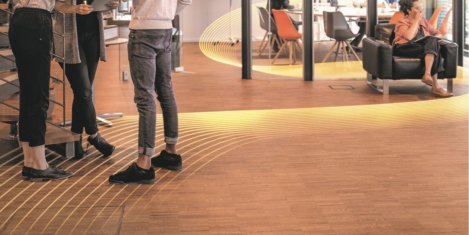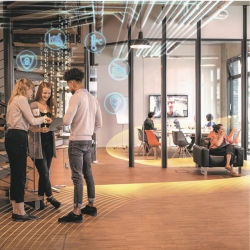To provide the best experiences, we use technologies like cookies to store and/or access device information. Consenting to these technologies will allow us to process data such as browsing behaviour or unique IDs on this site. Not consenting or withdrawing consent, may adversely affect certain features and functions.
The technical storage or access is strictly necessary for the legitimate purpose of enabling the use of a specific service explicitly requested by the subscriber or user, or for the sole purpose of carrying out the transmission of a communication over an electronic communications network.
The technical storage or access is necessary for the legitimate purpose of storing preferences that are not requested by the subscriber or user.
The technical storage or access that is used exclusively for statistical purposes.
The technical storage or access that is used exclusively for anonymous statistical purposes. Without a subpoena, voluntary compliance on the part of your Internet Service Provider, or additional records from a third party, information stored or retrieved for this purpose alone cannot usually be used to identify you.
The technical storage or access is required to create user profiles to send advertising, or to track the user on a website or across several websites for similar marketing purposes.
 The latest research from recruitment agency Robert Half UK, claims that the majority of businesses are pursuing workplace culture improvements during the first half of the year. Increasing diversity and inclusion is a top priority for over a quarter of business leaders, as companies seek to improve workplace culture in a competitive hiring market. (more…)
The latest research from recruitment agency Robert Half UK, claims that the majority of businesses are pursuing workplace culture improvements during the first half of the year. Increasing diversity and inclusion is a top priority for over a quarter of business leaders, as companies seek to improve workplace culture in a competitive hiring market. (more…)












 Accountants are wary about the impact that the government’s IR35 off-payroll tax reforms will have on the UK’s contracting industry and would like to see them repealed altogether, a new survey claims. According to research by
Accountants are wary about the impact that the government’s IR35 off-payroll tax reforms will have on the UK’s contracting industry and would like to see them repealed altogether, a new survey claims. According to research by 




 Two thirds of UK business leaders expect developments in technology to lead to an increase in the number of permanent jobs created this year, a survey has suggested. The South West and Wales region is the most confident about the impact of new technology, with nearly three quarters of businesses anticipating jobs growth, compared to 56 percent in the least optimistic region, the North of England.
Two thirds of UK business leaders expect developments in technology to lead to an increase in the number of permanent jobs created this year, a survey has suggested. The South West and Wales region is the most confident about the impact of new technology, with nearly three quarters of businesses anticipating jobs growth, compared to 56 percent in the least optimistic region, the North of England. 
 A problem shared may be a problem halved but, according to a new
A problem shared may be a problem halved but, according to a new 
 One in three US workers have told researchers nothing would stop them from taking advantage of flexible working options, despite the potential damage to their career. According to a
One in three US workers have told researchers nothing would stop them from taking advantage of flexible working options, despite the potential damage to their career. According to a 
 Today is the first productive day of the year for UK employees, according to new research which claims 38 working days were lost, on average, by each employee last year due to physical and mental health related absence and presenteeism. The study puts the cost to businesses and the economy of these lost days (which in reality are of course spread out across the whole year) at £91.9bn in 2019, an increase of more than £10bn on 2018.
Today is the first productive day of the year for UK employees, according to new research which claims 38 working days were lost, on average, by each employee last year due to physical and mental health related absence and presenteeism. The study puts the cost to businesses and the economy of these lost days (which in reality are of course spread out across the whole year) at £91.9bn in 2019, an increase of more than £10bn on 2018. 







February 27, 2020
The integration of people, place and policy will define the new workplace era
by Frances Gain • Comment, Wellbeing, Workplace design